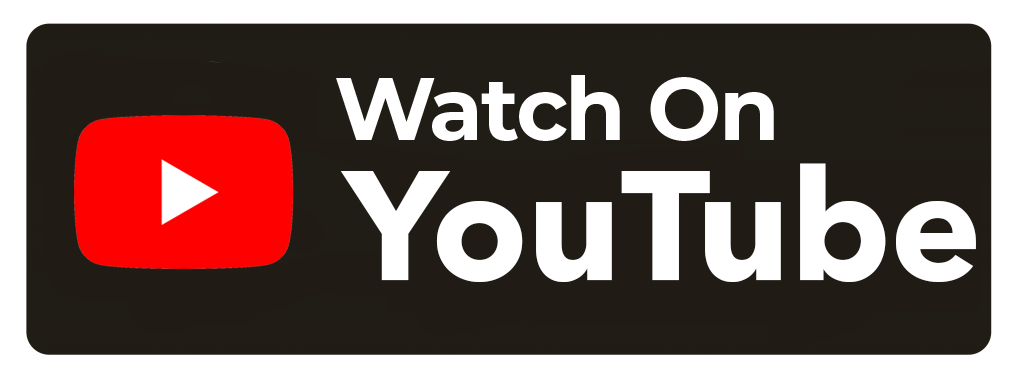Do you know how to protect yourself against CREDIT DISCRIMINATION?!
Do you know how to protect your customers from CREDIT DISCRIMINATION?!
Do you know what CREDIT DISCRIMINATION is?
Well, on this week’s Podcast I’m going to explain: what Credit Discrimination is, which groups are the most affected by it, how to spot it, and what it means for your business!
Credit is an essential part of modern life.
Credit can determine whether or not you get a job, it can determine whether or not you can buy a house, and it can determine whether or not your child can afford to go to college…
Credit Discrimination happens when a lender allows protected traits – such as race, color, religion, national origin, sexual orientation, marital status, age, or reliance on public assistance programs – to influence its decision to offer you credit or a loan.
When Discrimination enters into the credit equation, the consequences can be massive!
Not only are people negatively impacted but, for example, if a teenager isn’t approved for a college loan, and they don’t end up going to college, their entire family can be held back for generations of further economic advancement.
So it’s essential to understand what Credit Discrimination is so that we can combat it wherever we find it.
There are three types of discriminatory practices outlined under the FDIC:
- Overt Discrimination
- Unequal Treatment
- Unequal Impact
I’ll explain what those are in a moment…
First, I need to briefly touch on the history of the credit industry…
The concept of consumer credit came about at the turn of the century, as retailers started extending credit to their individual customers.
These retailers hired credit managers to evaluate the risk involved on a case-by-case basis and in 1912, they formed a national association to develop a standard method for collecting and sharing information on debtors…And that’s when the first credit bureaus were born.
That system of evaluating a person’s financial fitness was put in place eight years before women were allowed to vote…
AND women were unable to apply for credit independent of a man until the mid-20th century…
So, you might say that discrimination was baked-in to the credit system from the beginning.
It also might not surprise you that the credit bureaus and the credit scoring system, in general, operate without almost any oversight.
This is because credit scoring technologies are not public information. They are considered proprietary trademarks of the companies that invented them…We literally don’t know exactly how the algorithms that shape our lives work because the credit bureaus keep them secret!
But how does this relate to us, the credit repair specialists?
Well, a large portion of your client base is likely one of the groups historically vulnerable to Credit Discrimination…
- Women!
- Senior Citizens.
- People of Color.
- Consumers with Disabilities.
- Veterans and Active-Duty Service Members: who are not specifically protected by the Equal Credit Opportunity Act.
- And consumers who identify as LGBTIQ+: who didn’t receive specific protection until March of 2021.
Now you might be wondering how they even know demographic information in order to discriminate. Well, very often they do it by zip code. Pretty evil, right?
Here’s the thing to remember…
Credit Discrimination is affecting your life and your business whether you realize it or not…
This is why we must guard against it in all its forms.
Here’s why this is important…
The credit system as we know it was born at the turn of the century.
The federal government didn’t recognize the need to protect consumers from discriminatory practices until 1974 when they passed the Equal Credit Opportunity Act.
But it’s still happening, so you need to learn how to spot Credit Discrimination to protect yourself and your customers!
The three types of Credit Discrimination are…
Overt Discrimination - This is when a lender discriminates openly against someone for their race, age, gender, etc. It usually involves blatant discriminatory statements.
Unequal Treatment - This is when consumers are treated differently because of a category that is protected by law. In these cases, you don't need to prove the discrimination was intentional, just that you were treated differently and that there isn't a good reason to explain the treatment.
Unequal Impact - This is when a creditor's policies or practices disproportionally affect certain groups, even when the policy is applied equally to all. If the impact of the policy negatively affects a certain group, that can count as discrimination.
A person or group may experience one of these types of discrimination or several types all at once.
Discrimination can evolve over time, for example, the process of Redlining began in the 1930s and was the human-based practice of denying loans or financial services to residents of certain areas based on their race...This has transitioned into the modern age where an algorithm can deny you loans or financial services based on your zip code or other factors.
This is why, in a complex world, with historic and modern forms of discrimination, it’s essential to know your rights and the rights of your customers.
When you get credit, you have the right to know WHY the creditor rejected your application. The creditor must tell you the specific reason for the rejection (for example, “your income is too low” or “you haven’t been employed for long enough”) or they must tell you that you are entitled to learn the reason if you ask within 60 days.
You have the right to learn the specific reason why the creditor offered you less favorable terms than the ones you applied for…but only if you reject these terms. For example, if the creditor offers you a higher interest rate, and you don’t accept it, you have the right to know why those terms were offered.
You have the right to find out why your account was closed or why the terms of the account were made less favorable…unless the account was inactive or you didn’t make payments as agreed.
Every right you learn, every law you know, empowers you and your customers.
Here’s what you need to know…
The CFBP says there are several warning signs of Credit Discrimination to watch out for…
- If someone hears the lender making negative comments about race, sexual orientation, or other protected statuses
- If someone is treated differently in person than on the phone or online
- If someone is encouraged or told to apply for a type of loan that has less favorable terms (for example, a higher interest rate)
- If someone is discouraged from applying for credit
- If someone is refused credit even though they qualify for it based on advertised requirements
- And If someone is offered credit with a higher rate than you applied for, even though you qualify for a lower rate based on advertised requirements
There are also different protections in different states.
For example, Credit Discrimination for gender identity and sexuality is prohibited in 15 states (and Washington D.C)...with 2 additional states that provide umbrella protection. So this means that MOST states allow this discrimination!
You have to learn the rules in your state!
You have to know where you’re protected and where you’re vulnerable!
Last, the CFPB and the FTC both recommend specific actions be taken if you believe you’re the victim of Credit Discrimination…
First, write everything down as you recall it and collect all forms of relevant documentation!
Next, reach out to the creditor or lender. Sometimes you can persuade them to reconsider your application. Then contact the company's customer support line and request they remedy the situation.
Then report violations to the appropriate government agency.
- File a CFPB complaint. If the lender refuses to work with you, file a complaint about the company, and the CFPB will work with you to get the issue resolved.
- File a Federal Trade Commission (FTC) complaint. The FTC doesn't resolve individual complaints, but they do maintain a database of complaints. Enforcement agencies may be able to identify discriminatory lenders through this database. Share your story and you could help them crackdown on a discriminatory lender.
If none of this works, talk to a lawyer. You may retain a private attorney, but it’s recommended that you contact your state’s attorney general's office.
- For legal resources listed by state, visit: LawHelp.org
- To locate your state attorney general’s office, visit: NAAG.org/find-my-ag/
Now, you might be thinking: “I’m just a small credit repair business…how am I supposed to protect my clients from all this Credit Discrimination?”
The answer is…you have to try.
Educating yourself and educating your customers is the best way to guard against these practices to help ensure we are all treated fairly…
As equals under the law. ✊✊✊
If you don’t already have a Credit Repair Cloud account, check it out. It’s the software that most credit repair businesses in America run on. Just sign up for a 30 day free trial at creditrepaircloud.com/freetrial
And If you’d like me to hold you by the hand as you launch your own credit repair business, check out our Credit Hero Challenge!

It’s an amazing program where you’ll learn the processes that have made millionaires, and it costs less than you'll spend taking your family to McDonald’s for dinner.
We’ve got another challenge starting in a few days, so grab your spot right now at CreditHeroChallenge.com!
Also, if you don’t already have a Credit Repair Cloud account, check it out. It’s the software that most Credit Repair businesses in America run on. Just sign up for a 30 day free trial at creditrepaircloud.com/freetrial
Until next time, remember, keep educating yourself, keep educating your customers…
And keep changing lives!
Be sure to subscribe on your favorite platform below!
 |
-1083c.png) |
-1dd56.png) |
-13371.png) |












